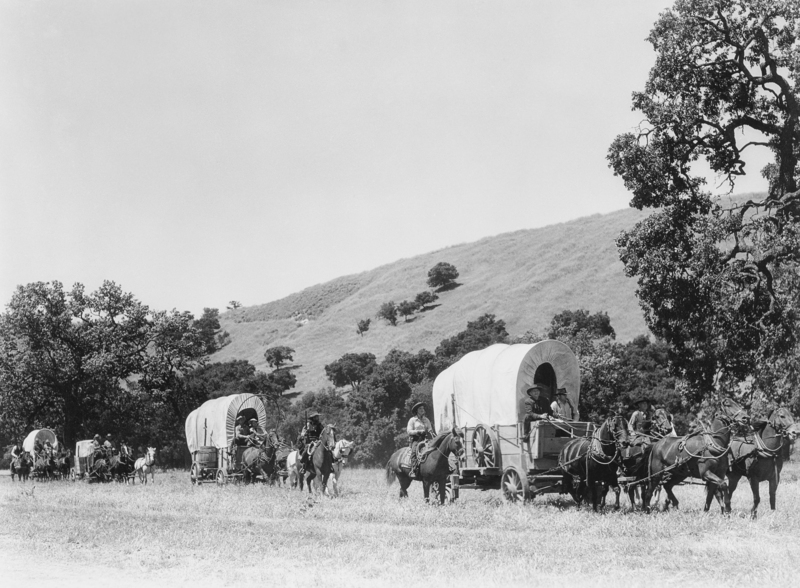Ensure Your Freezer's Longevity with Proper Storage Techniques
Posted on 21/05/2025
Ensure Your Freezer's Longevity with Proper Storage Techniques
Your freezer is a silent hero in your kitchen, preserving food, minimizing waste, and helping you plan ahead. But to enjoy long-lasting performance and efficiency, proper freezer storage techniques are essential. Ensuring your freezer's longevity not only saves you money but also protects the quality of your food and guarantees food safety for your household.
Why Proper Freezer Storage Matters
Many of us take our freezers for granted, but improper storage can lead to a host of problems. These include increased energy consumption, frost build-up, unpleasant odors, food spoilage, and even freezer breakdowns. By following the right methods for storing food in your freezer, you can maximize efficiency, extend your freezer's lifespan, and ensure your frozen foods retain their flavor and nutritional value.
Main Benefits of Proper Freezer Storage
- Reduces Energy Usage: An organized freezer requires less energy to operate.
- Prevents Freezer Burn: Proper packaging and arrangement maintain food quality.
- Prolongs Appliance Life: Minimizes strain on your freezer's compressor and other vital components.
- Optimizes Space: Smart storage allows more items to fit without obstructing airflow.
- Enhances Food Safety: Ensures even freezing for all items, minimizing bacterial growth.

How to Prepare Foods for Freezing
The journey to effective freezer storage starts before your food even hits the cold air. How you prep and package food determines both its lifespan and your appliance's efficiency.
Packaging Essentials
- Choose Suitable Containers: Use freezer-safe containers, heavy-duty plastic bags, or specialized vacuum sealers to prevent air exposure and freezer burn.
- Label Everything: Mark each package with the type of food and the date frozen using a waterproof marker. This makes it easy to use items in the right order and avoid waste.
- Portion Control: Divide large batches of food into meal-sized portions. This allows you to defrost only what you need, preserving freshness for the rest.
- Eliminate Excess Air: Air exposure is the main enemy of frozen food. Squeeze out as much air as possible from bags or use vacuum-sealing for best results.
- Pre-Freeze for Certain Foods: For berries and individually frozen items, spread them on a baking sheet and freeze until solid before transferring to bags. This keeps them from sticking together.
Best Practices for Storing Food in Your Freezer
Extension of your freezer's lifespan depends heavily on how you organize its contents. Optimal arrangement ensures even airflow, minimizes ice build-up, and ensures you never lose track of what's inside.
Smart Organization Tips
- First In, First Out (FIFO): Place newer items behind older ones so you use up products before they expire.
- Group Similar Items: Keep meats, vegetables, baked goods, and ready meals in separate zones. Using baskets or bins can make this easier.
- Avoid Overcrowding: Don't pack your freezer to the brim. Leave room for air to circulate so everything maintains a consistent temperature.
- Don't Leave It Too Empty: A nearly empty freezer loses cold air quickly and works harder, shortening its life. If you have extra space, fill it with jugs of water.
- Flat Freezing Technique: Freeze items like soups, stews, and sauces flat in bags. Once solid, they can be stacked easily and save a lot of space.
Temperature Control for Maximum Longevity
Your freezer's temperature should always be 0?F (-18?C) or lower. Every degree above increases the risk of spoilage and shortens the life of both your food and the appliance. A digital freezer thermometer can give you precise readings to ensure top performance.
- Monitor Regularly: Check temperatures every few weeks and after loading large amounts of unfrozen food.
- Avoid Frequent Opening: Every time you open the door, cold air escapes and warm, moist air enters. Minimize how often you access your freezer to maintain both efficiency and food safety.
Common Mistakes to Avoid for Long-Lasting Freezer Performance
- Freezing Hot Foods: Always cool foods before freezing. Introducing hot items raises the temperature, causing other foods to partially thaw and refreeze, leading to texture loss and possible bacterial growth.
- Poor Sealing and Labeling: Unlabeled or poorly sealed foods are soon forgotten and eventually wasted, taking up valuable space and energy.
- Overpacking and Underpacking: Freezers work best when they're full -- but not stuffed. Find the right balance for optimal longevity.
- Storing the Wrong Items: Avoid freezing items like eggs in their shells, high-water-content vegetables, or dairy products that separate (unless prepped specifically for freezing).
Cleaning & Defrosting: Key to Freezer Longevity
Regular maintenance is critical if you want to ensure the long life of your freezer. Frost build-up, spills, and trapped odors can not only damage your appliance but also affect energy efficiency and food safety.
Cleaning Steps
- Empty Your Freezer: Move your food to a cooler or another freezer while you clean.
- Defrost if Necessary: If you don't have a frost-free model, defrost whenever you see more than a quarter-inch of ice build-up.
- Clean Thoroughly: Wipe all surfaces with a mixture of water and baking soda to neutralize odors and remove grime. Avoid harsh chemicals that can damage seals.
- Check and Clean Gaskets: The door seal should be free of residue and cracks. A tight seal keeps cold air in and warm air out.
- Reload Strategically: Place items back in an organized fashion, with the most-used items near the front.
How Different Foods Affect Freezer Longevity
Not all foods are created equal when it comes to freezing. Some foods can emit strong odors or leak, potentially damaging freezer interiors or contaminating other foods. Certain fats can also go rancid over long periods, which can affect not just flavor but also appliance wear.
- Strong Odors: Onions, garlic, and fish can permeate the sealed environment. Double-wrap or use airtight containers for best results.
- High-Fat Foods: Foods like nuts or fatty meats can oxidize. While freezing slows this process, use within recommended timeframes.
- Water-Rich Foods: Lettuce, cucumbers, and other high-water-content veggies tend to lose texture when frozen, leading to icy build-up and possible sticky messes during thawing.
- Dairy and Creamy Sauces: Cream-based dishes can separate and spoil faster in the freezer, potentially spilling onto surfaces and gaskets.
Essential Freezer Organization Tools
- Bins and Baskets: Used to separate food categories and organize like-sized items together.
- Vacuum Sealers: Remove air and keep food fresher for longer periods, aiding both space optimization and freezer efficiency.
- Labels and Markers: Essential for rotating stock and preventing forgotten, wasted food at the back.
- Thermometers: Allow you to monitor temperature accurately, ensuring optimum performance and food safety.
Tips for Maximizing Your Freezer's Lifespan
Your freezer's overall health depends on a handful of habits. By incorporating these tips into your routine, you'll enhance both appliance life and food quality:
- Keep Door Seals Clean and Tight: Doors that don't seal well lead to energy loss and frost buildup. Test your seal by placing a piece of paper in the closed door. If it slides out easily, replace the gasket.
- Leave Space Around Vents: Internal and external vents need unobstructed airflow to avoid overheating and internal ice accumulation.
- Allow Adequate Clearance: Ensure your freezer isn't pushed flush against the wall. Leave several inches space at the back and sides for heat dissipation.
- Defrost and Clean Regularly: Set a schedule for annual or bi-annual cleaning, and defrost as necessary to keep internal mechanics running smoothly.
- Don't Ignore Noises: Unusual humming or clicking can indicate mechanical issues. Address problems early to avoid breakdowns and expensive repairs.

Frequently Asked Questions about Freezer Longevity and Storage
How often should I clean my freezer?
It's recommended to clean your freezer at least twice a year, or more if you notice spills, frost build-up, or unpleasant odors.
What's the best way to prevent freezer burn?
Use airtight packaging and remove as much air as possible from containers. Make sure the temperature remains at or below 0?F (-18?C).
How full should my freezer be for it to run efficiently?
Ideally, a freezer should be at least 75% full but not packed to capacity. This balance ensures optimal cold retention and allows for proper air circulation.
Are some foods unsafe to freeze?
Yes. Foods like eggs in shells, deep-fried dishes, high-moisture fruits and vegetables, and creamy dairy desserts don't freeze well and can spoil or compromise the freezer environment.
What's the average lifespan of a freezer?
With proper use and maintenance, most home freezers last between 12 to 20 years.
Conclusion: Enhance Appliance Performance with Smart Storage
Protecting your investment by using the right freezer storage techniques goes beyond just keeping food safe; it extends the lifespan of your appliance, saves on costly energy bills, and reduces waste. In summary, keep your freezer organized, packed thoughtfully, kept at the right temperature, and cleaned regularly for years of efficient, worry-free freezing.
Remember, ensuring your freezer's longevity is set by the habits you develop today. Start implementing these tips now, and you'll reap the benefits in both food quality and appliance fidelity for years to come!
```Latest Posts
Ultimate Pre-Move Cleaning Guide for a Fresh Start
Proven Strategies to Relocate Your Bed and Mattress
Uncovering the Complexity of Moving a Piano By Yourself



